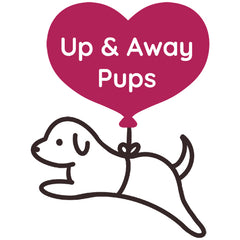Essential Care Tips for a Healthy Miniature Dachshund Puppy
Raising a Miniature Dachshund requires love, early training, proper nutrition, and regular exercise. Focus on their physical care, socialization, and mental stimulation to ensure they grow into healthy, confident, and well-adjusted companions. Prevent obesity, maintain joint health, and provide regular vet check-ups for a long, happy life.
A Miniature Dachshund does not just need love and attention to be raised. Although these small, spirited dogs are so jovial and adding, their physical structure and high energy characteristics require very careful attention in terms of care and planning. Learning their requirements early in life makes them become healthy and joyful adults.
Routine training, good nutrition, and exercise are the cornerstones of a healthy puppy. All you need to do is follow these main tips to raise a strong, confident, and well-adjusted Miniature Dachshund Puppy even at the earliest stage.
Important Facts to Know About Dachshund Puppies
Prior to adopting a Miniature Dachshund, it is essential to know their specifics and how to care for them. These little dogs possess prominent personalities and cannot survive in the home setting without being taken care of regularly.
Breed Origins and Temperament
The Miniature Dachshund had its origin in Germany where it was used to hunt badgers and small mammals. This heritage is the essence of their inquisitive, daring nature. They are clever, faithful, and may be stubborn, and this demands early training to help them harness their energy in a positive way.
Physical Characteristics and Size
The miniature Dachshunds are small but strong. They are typically 11 pounds or less in weight and come in different coat colors/types, including smooth, longhaired, and wirehaired. They have a long spine and short legs, which predispose them to back problems and demand special care in managing and exercising. Interestingly, even the other similar breeds, like a Miniature Schnauzer, need a similar care because of their small but active size, which explains the value of considering the breed factor.
Lifespan and Health Outlook
Miniature Dachshunds typically have a lifespan of 12 to 16 years when properly cared for. The American Kennel Club (AKC) identifies smaller breeds as having longer lifespans, with the Dachshund being among them, with an average lifespan of 16 years or more. They have a healthy disposition, but they are vulnerable to some diseases like the intervertebral disc disease, dental issues, and obesity. Veterinary care and a healthy lifestyle should be employed to maintain their health and extend their lifespan.
Personality and Social Behavior
Although miniature Dachshunds are small, they are fearless and sometimes behave like large dogs. They are loving of family members but watchful of strangers. Early socialization will help them adapt better to new conditions and meet new people.
Exercise and Activity Levels
These are medium-energy puppies. They like taking short walks and playing games. Nonetheless, their sensitive backs need close handling when playing. Serious activities, such as taking extended amounts of jumps or using stairs regularly, should be avoided.
Effective Care Strategies for a Healthy Miniature Dachshund Puppy
Owning a Miniature Dachshund is a serious task. Care tips are essential to ensure that your puppy grows up physically and emotionally healthy, which will enable you to raise him with a balanced temperament as a companion.
Balanced Diet and Proper Nutrition
The appropriate diet should be provided for your Miniature Dachshund Puppy to support its development and overall well-being. Select nutritious puppy food containing sufficient amounts of protein, fats, and essential vitamins. Do not overfeed, as even a slight weight gain can strain this breed. A report by PetMD states that more than half of all dogs in the US are overweight, serving as a reminder that it is crucial to control how much one eats.
Try introducing a routine feeding schedule and ensure to measure the food portions you offer. Keep fresh water accessible throughout the day. Furthermore, discuss with vets about the right types of food ideal for your pup and the portion sizes. This helps maintain their optimal weight, preventing any type of nutritional deficiencies.
Exercise and Safe Playtime
The first step to a safe and effective routine is preparing the home for Miniature Dachshunds. Miniaturized Dachshunds require regular exercise to maintain their health and activity levels. Twenty-minute walks and indoor playtime help keep their bodies active and their brains sharp. Provide light exercises that involve movement without straining the back excessively.
Do not allow rough play or letting them jump off furniture, as these activities may result in spinal injuries. To help balance their energy safely, acquiring toys that encourage their hunting instincts, such as puzzle feeders and squeaky toys, is recommended.
Early Training and Obedience
Early training should be used to instill good behavior habits. Miniature Dachshunds are intelligent like their similar breeds, such as a Teacup Chihuahua, and, therefore, patience and consistency are essential. Provide positive rewards, such as praise and treats, to encourage the desired behavior.
Their stubborn nature can make housebreaking a long process. Maintain regular bathroom schedules and praise good performance. Obedience training at an early age fosters trust and strengthens the bond between the owner and the puppy by increasing their responsiveness and confidence.
Socialization and Exposure
Training your puppy socially keeps them out of anxiety and fear in adulthood. Expose them to different people, pets, and surroundings under controlled conditions. Slow exposure will ensure their transformation into well-adjusted dogs who can navigate various economic conditions with ease.
Social confidence can be enhanced through puppy classes, visiting parks, or even attending playdates. The aggressive or fearful response is also reduced because of the consistent interaction, which makes an adult Dachshund calm and in the friendliest way.
Health Checks and Veterinary Care
Preventive care is essential due to regular vet check-ups. Puppies must be vaccinated, dewormed, and examined to identify any signs of potential complications. Consistent screening enables them to receive proper treatment and advice regarding nutrition or developmental issues.
Ask your vet about breed-specific health issues, such as back problems. Dental checkups, using parasites, spaying or neutering, help you live longer and healthier with your Dachshund.

Dental Hygiene and Grooming Needs
Miniature Dachshunds are known to be susceptible to oral health issues; therefore, maintaining proper oral hygiene is their top priority. Clean their teeth multiple times a week with toothpaste approved by a veterinarian to prevent the development of tartar and gum diseases. The most frequently asked question is Are Dachshunds Hypoallergenic? Although not hypoallergenic, proper hygiene can reduce allergens and make the environment healthier.
The grooming needs vary by type of coat. Smooth coats should be infrequently brushed, and longhaired and wirehaired Dachshunds should be regularly groomed to avoid becoming tangled and matted. Infection can be prevented by ensuring that nails are kept trimmed and ears are kept clean and dry.
Preventing Obesity and Joint Strain
It is essential to maintain the correct weight for your Dachshund to protect its back and joints. The Association of Pet Obesity Prevention (APOP) notes that nearly 59 percent of pet dogs in the US are overweight or obese. Body weight is a predisposing factor to spine trauma and mobility problems.
Promote low-impact exercises like short walks or a light chunk of fetching. Do not permit your puppy to climb up and down stairs or jump up and down on beds, as this can overburden their spine over time. Emphasize moderate physical activity and a balanced diet.
Comfortable Living Environment
Providing a secure and comfortable home environment is one of the key factors in making your Dachshund happy, particularly when it comes to puppy care in Summer and Winter. Give a comfortable and safe place to stay that does not inconvenience your pup. To reduce the risk of jumping, soft bedding is recommended, and furniture should be used sparingly. Consider small steps or ramps to couches or beds, in case of necessity.
Their sleeping area should be warm since Dachshunds may be sensitive to cold. Provide a relaxed atmosphere to help curb stress or anxiety, particularly during the initial phases of settling into a new home.
Mental Stimulation and Enrichment
The stimulation of the intelligent mind in a Miniature Dachshund is based on mental challenges and exercises. Use interactive toys, scent games, and short training activities. Brain-stimulating activities eliminate boredom and antisocial behavior.
Change the toys around frequently to keep the interest. Gradually learning new tricks or cues for obedience not only solidifies your relationship but also keeps your often-diet puppy psychologically engaged. It is as essential that they engage their minds as they exercise their bodies.
Managing Separation Anxiety
Dachshunds form strong bonds with their owners and can become anxious about being separated. Train your puppy progressively to become comfortable when left alone. Giving toys or puzzle feeders does more than keep them busy; it takes care of their Canine Mental Health by eliminating stressors and causing a stimulated mind.
Develop a regular departure habit and do not be overly attentive when departing. This assists them in making your absence look normal instead of looking despairing. Early management or preventing anxiety behaviors, such as chewing or competing to bark, helps promote overall emotional well-being.
Regular Routine and Consistency
An organized routine helps your Dachshund to stay emotionally solid. Regularly tracking their activities during meals, walks, and play also helps them learn what happens on a day-to-day basis, which gives them a sense of safety.
It also makes prediction and training easier and lessens anxiety. Puppy schedules early on in life develop healthy routines that will continue in adulthood and, in the process, make your dog confident and obedient.
Monitoring Growth and Development
You also track the milestones of your puppy and provide care as the puppy grows. Frequent weight monitoring, tracking behavioral changes, and assessing physical development help identify potential areas of concern in a timely manner. A study conducted by the American Veterinary Medical Association (AVMA) has shown that monitoring the growth pattern of puppies is necessary to identify early signs of developing health or developmental problems.
Contact your vet in the event of unusual growth patterns or behavioral problems. Active engagement in healthy monitoring ensures your Dachshund grows healthily at every stage of puppyhood, from adolescence to adulthood.
Conclusion
Ownership of a Miniature Dachshund Puppy requires patience, knowledge, and consistency. Adequate nutrition, moderate physical activity, and regular check-ups promote long-term health. Emphasizing emotional bonding, training, and socialization can help your puppy develop into a confident and loving companion.
Through careful attention, your Dachshund will become a loving and faithful family member who can enrich any day with his enthusiastic character and unwavering loyalty.


